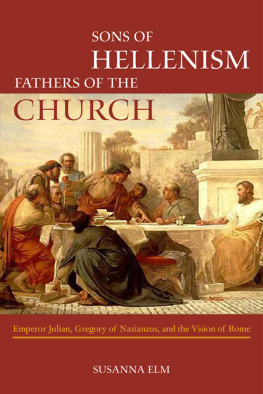Susanna Gregory - The Tarnished Chalice
Here you can read online Susanna Gregory - The Tarnished Chalice full text of the book (entire story) in english for free. Download pdf and epub, get meaning, cover and reviews about this ebook. year: 2010, publisher: Little, Brown Book Group, genre: Detective and thriller. Description of the work, (preface) as well as reviews are available. Best literature library LitArk.com created for fans of good reading and offers a wide selection of genres:
Romance novel
Science fiction
Adventure
Detective
Science
History
Home and family
Prose
Art
Politics
Computer
Non-fiction
Religion
Business
Children
Humor
Choose a favorite category and find really read worthwhile books. Enjoy immersion in the world of imagination, feel the emotions of the characters or learn something new for yourself, make an fascinating discovery.

- Book:The Tarnished Chalice
- Author:
- Publisher:Little, Brown Book Group
- Genre:
- Year:2010
- ISBN:9780748124480
- Rating:4 / 5
- Favourites:Add to favourites
- Your mark:
- 80
- 1
- 2
- 3
- 4
- 5
The Tarnished Chalice: summary, description and annotation
We offer to read an annotation, description, summary or preface (depends on what the author of the book "The Tarnished Chalice" wrote himself). If you haven't found the necessary information about the book — write in the comments, we will try to find it.
The Tarnished Chalice — read online for free the complete book (whole text) full work
Below is the text of the book, divided by pages. System saving the place of the last page read, allows you to conveniently read the book "The Tarnished Chalice" online for free, without having to search again every time where you left off. Put a bookmark, and you can go to the page where you finished reading at any time.
Font size:
Interval:
Bookmark:
Susanna Gregory
The Tarnished Chalice
PROLOGUE
Cambridge Castle, March 1335
The court was full when the sheriff brought the accused from his cell. John Shirlok glanced at the jurors who would try him twelve local men who shuffled and sighed their resentment at being forced to spend their precious time listening to unsavoury tales of robbery, burglary and murder. They were supposed to be respectable, up-standing citizens of good character, although Shirlok knew that simply meant they were men who had been unable to think of a good excuse to absent themselves. All were wealthy they wore fur-lined cloaks and thick boots against the bite of late winter and none would be sympathetic to the crimes Shirlok was accused of committing, but he was not unduly worried. There was no question of his guilt he had been caught red-handed with stolen property, and that alone was enough to earn him an appointment with the hangman. But he had a plan. No thief worked alone, and Shirlok intended to walk free from the castle that day.
I bring John Shirlok before you, intoned the sheriff, quelling the babble of conversation that had erupted while the felon was being fetched from the gaol. He stands accused of stealing white pearls, valued at a hundred shillings-
Shirlok? interrupted Justice Sir John de Cantebrig. He was presiding over the court, making sure the trial and its subsequent conviction he did not think acquittal was very likely in Shirloks case followed proper protocols. That name is familiar.
It was his clerk, a clever lawyer called William Langar, who answered. Langar was tall, thin and had spiky ginger hair; his duties were to advise Sir John on the finer points of the law and to make an accurate record of the proceedings.
Shirlok was due to appear before you two months ago, Sir John, Langar said. But he exercised his right to challenge the jury we assembled. He objected to eleven of them-
That was because they were kinsmen of- began Shirlok indignantly.
Silence! snapped Langar. He turned back to the Justice. He will make a fuss about any jury if we let him, just to delay his hanging, so I suggest we proceed as planned today. We cannot house thieves in our gaol indefinitely, and he has been enjoying our hospitality for three months already.
Sir John nodded. He knew all about the devious ploys felons used in an attempt to avoid the inevitable. He glanced at Shirlok, taking in the sly, foxy expression on the mans face, and the way his eyes were never still. He did not think he had ever seen such transparent guilt. Very well.
The sheriff glanced at the parchment he held. I was listing the items Shirlok stole, some of which were found on his person such as the white pearls. Next, there was a chalice worth twenty shillings that belonged to the church at Geddynge . . .
A murmur of distaste ran through the hall. Theft from a religious foundation was a serious offence. Shirlok heard it, and his composure slipped a little. I had nothing to do with taking that cup.
The sheriff waited for silence, then continued again. The list was extensive linen cloth, a brass pot valued at two shillings, an expensive rug, a two-coloured coat, a jug he called an urciolum. His monotonous voice droned on and on, and the jurors eyes began to glaze as their attention wandered.
We have recovered some of these items, and they are here for your inspection, concluded the sheriff eventually. He turned to rummage in a box he had brought with him. The Geddynge chalice was found in the possession of one Lora Boyner, after Shirlok had sold it to her. She claims she bought it in good faith.
He held aloft a goblet, reclaiming the attention of the bored jurors even Sir John had been lost in a reverie about the sorry state of his winter cabbages. The cup was not very big, and its battered, stained appearance suggested it was old. There was an etching on one side, which was worn and faint, although anyone with keen eyes would see it involved a baby.
That is worth twenty shillings? asked Sir John, trying to make up for his lapse in concentration by showing some interest. He took the vessel from the sheriff and studied it. Is it silver?
It is just some old thing, said Langar dismissively. The rector of Geddynge maintains he recently bought it from a travelling friar, but when Shirlok stole it-
I never took that cup, protested Shirlok again. The other stuff, maybe, but not the chalice.
He did and then he had the gall to sell it to me, declared Lora Boyner indignantly. She was a squat, mus cular person who made her living by brewing ale; Sir John had often marvelled at the way she could lift a full keg as if it weighed nothing. He said it belonged to his grandmother, and I believed him poor fool that I am.
Poor fool indeed, murmured Sir John, thinking what he would have assumed, had a rogue like Shirlok appeared on his doorstep and claimed he had his grandams silver for sale.
And he stole my linen, added the young woman at Loras side, speaking because Lora had jabbed her in the ribs with a powerful elbow. Mistress Godeknave was a slender, graceful creature with large blue eyes. I am a poor defenceless widow, and cannot afford to lose my few possessions to thieves.
How do you plead, Shirlok? asked Sir John, watching Langar write down the charges.
Guilty to some of it, replied Shirlok, trying to stand upright. It was difficult with the manacles weighing him down. But I intend to turn approver, and expose the eight men and two women what helped me steal all these years. Deal kindly with me, Your Highness, and I shall give you their names.
Speak up, then, said Sir John, although his inclination was to sentence Shirlok and move on to the next case. He was weary of criminals bucking against the inevitable.
He is wasting our time, called one of the jurors, equally keen to be finished before more of the day was lost. Oswald Stanmore was ambitious, determined to make his fortune as a clothier, and because it was market day, he was eager to be back among his apprentices. Next to Stanmore was his youthful brother-in-law, enjoying a break from his studies at the University in Oxford, although Sir John knew why he had not been pressed into jury service: Matt Bartholomew had a sharp mind and would ask too many questions. They would probably be perfectly valid ones, but no one wanted to spend all day ironing out details that were irrelevant to the outcome anyway.
The law compels us to hear what the accused has to say, replied Sir John. He saw a ripple of annoyance pass through the twelve men. Is that not so, Langar?
Langar was thoughtful. There have been other instances when criminals have turned approver. But their testimony is nearly always dismissed mostly because felons are dishonest by definition, so they cannot be trusted to tell the truth. Thus, listening to Shirloks charges is not mandatory for this court.
Not mandatory, mused Sir John. He was silent for a moment. But I took an oath to be fair, even to the lowest of villains. Name your associates, Shirlok.
There were several weary sighs, and Sir John was irritated to note that one came from Langar, who worked for him and so was supposed to support his decisions.
First, there is Nicholas Herl, said Shirlok. He pointed at a thickset man with black hair, who glowered at him. We robbed the Walmesford mill together, then set it alight.
That is a flagrant lie, Sir John, snapped Herl. He sounded more annoyed than concerned. I am a silversmith a professional man. Why would I burgle a mill?
Not a very good silversmith, Sir John heard Stanmore whisper to his brother-in-law. Did you see those spoons he made for me? Disgraceful workmanship!
Shirlok was not a fool, and he could see the jury did not like him. In an effort to make himself sound more creditable, he scoured his memory for the Latin he had learned as a child, hoping it would make them revise their low opinions and give him the benefit of the doubt.
Font size:
Interval:
Bookmark:
Similar books «The Tarnished Chalice»
Look at similar books to The Tarnished Chalice. We have selected literature similar in name and meaning in the hope of providing readers with more options to find new, interesting, not yet read works.
Discussion, reviews of the book The Tarnished Chalice and just readers' own opinions. Leave your comments, write what you think about the work, its meaning or the main characters. Specify what exactly you liked and what you didn't like, and why you think so.


